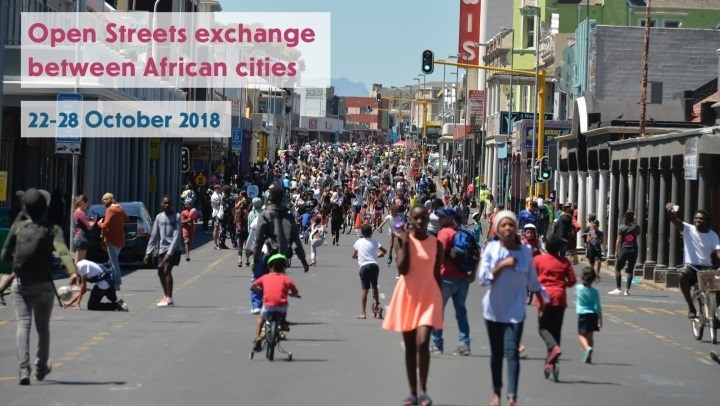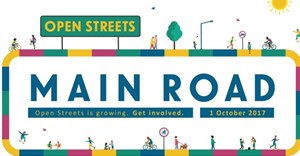
Subscribe & Follow
Advertise your job vacancies
Open Streets Exchange set for African cities
Open Streets Cape Town and UN-Habitat are hosting the first Open Streets Exchange for African cities from 22 to 29 October 201 in Cape Town.

Source: openstreets.org.za
The exchange will involve government officials and civil society activists from 10 cities across Africa who want to plan, facilitate and implement Open Streets initiatives in their own city. The event is supported by the Deutsche Gesellschaft für Internationale Zusammenarbeit (GIZ), through the Transformative Urban Mobility Initiative (TUMI) Challenge.
Taking place over a week, the Open Streets Exchange is designed as a people-centred learning exchange for streets enthusiasts who want to facilitate local place-making activities and sustainable mobility in their own contexts.
The programme will draw on the knowledge that Open Streets has built over five years of operation in Cape Town, and will provide delegates with a working example to begin implementation in their respective cities.
The experience will offer participants a chance to engage with Open Streets activities and participatory place-making processes. Among other things, the programme will guide delegates through the process of implementing Open Streets initiatives and will also address the key components in the process, such as identifying and collaborating with key stakeholders, navigating road closures, and engaging with local communities. At the end of the programme, delegates will participate in the first Open Streets Day of the season, to be held in Woodstock, on 28 October.
Marcela Guerrero Casas, managing director at Open Streets, explains why the Open Streets Exchange is an important part of the Open Streets programme,
“The learning exchange is a way to inspire people to collectively reimagine and reinvent public spaces and streets in their own cities. Our goal is to share the knowledge we’ve gained over five years in a practical, fun and innovative way. We would love to see the Open Streets movement grow in African cities and to encourage people in those cities to experience, use and perceive streets differently — particularly in terms of prioritising non-motorised transport.”
After an initial call to delegates across the continent, Open Streets received more than 70 applications received from over 15 countries. Guerrero Casas continues: “In addition to sharing our own knowledge, we’re also looking forward to learning more from the exchange cohort about programmes taking place in their own cities.”
The Open Streets Exchange programme includes various walks, lectures, discussions and place-making workshops. In particular, to set the scene, representatives from the University of Cape Town’s (UCT) Centre for Transport Studies will offer participants an introduction to Cape Town and the city’s relationship with non-motorised transport. Later in the week, the programme also includes a site visit to other locations where Open Streets Days take place to facilitate discussion on working in different contexts.
The Open Streets Exchange is supported by the UCT Centre for Transport Studies, and the City of Cape Town’s Transport and Urban Development Authority. The programme is also open to Cape Town-based initiatives.
For more about Open Streets, go to https://openstreets.org.za

















